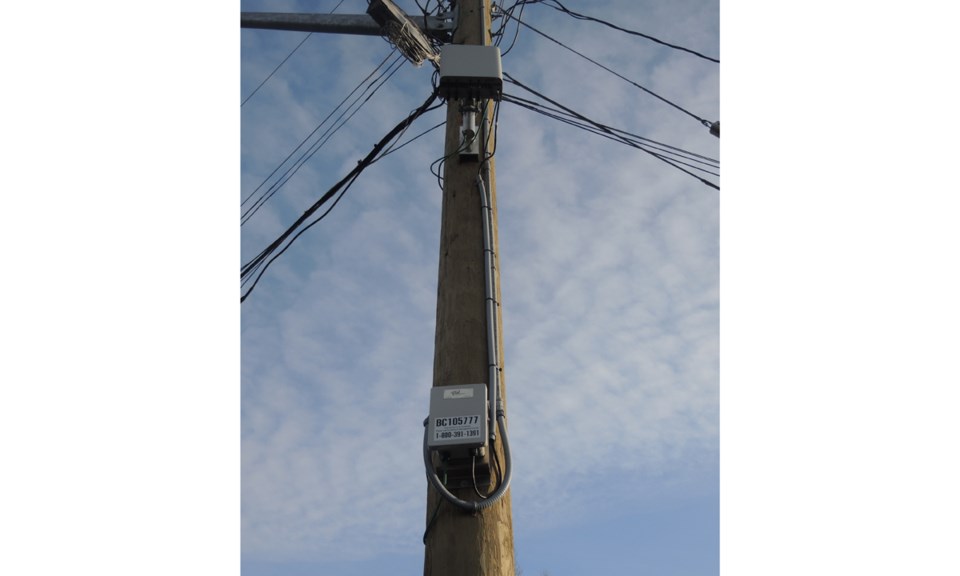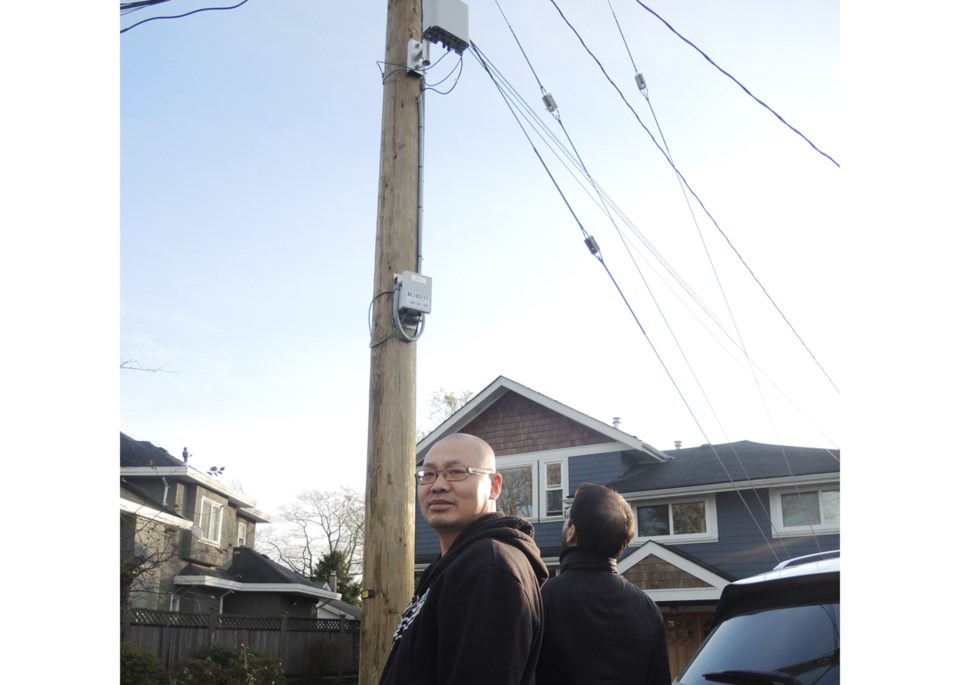Richmond residents have expressed health fears over upcoming 5G technology after the appearance of a communications antenna right outside their homes.
AJ Singh and Stephen Shi spotted the equipment a few weeks ago, mounted about 25 feet up the pole and a few feet from their driveways in south-west Richmond.
Not knowing what it was for and concerned about the health of his family, Singh – who’s building a detached home on the corner of Wellmond and Trumond roads - called the number on the antenna.
After hearing a Telus prompt, Singh spoke with a representative, who explained that the antenna in question was being used for the lower frequency 4G.
“But he told me it was going to be used for 5G in the future,” Singh told the Richmond News from underneath the antenna.
“I understand there is no 5G yet. But would anyone want this thing so close to their house, not knowing what it is?
“In terms of what I’ve learned online, they give out an unsafe level of radiation. My daughter’s bedroom is going to be right there. That’s too close. She’s two years old.
“They did this with no knowledge or consent; they should have told me it was going up.”

Shi, who has lived on the street for 10 years, said the proximity of the antenna is “very much a health concern.”
“How much radiation is coming from it? We’ve got enough radiation already from smart meters, water meters etc. They done it very sneakily.
I saw them changing the pole and chatted with them. They didn’t mention anything about this.”
Several citizen-led organizations have sprung up over the last few years, citing health fears over 5G technology, which is expected to be rolled out in Canada next year.
Although it’s being lauded for its ability to communicate larger amounts of information and much faster than its predecessor, the higher radio frequencies 5G uses aren’t able to travel as far as the current 4G wavelengths.
This means 5G will require an enormous expansion of current cell tower infrastructure in order to function as intended.
And some countries in Europe have stalled on bringing in 5G until more research is carried out on potential health risks.
When asked by the News if the antenna could be used for 5G technology when it’s rolled out, a Telus spokesperson didn’t comment.
However they did say that the antenna was a 4G small cell, “which improves coverage in areas where we are seeing increased traffic and capacity, and helps us stay ahead of the demand for wireless service.”
The spokesperson said the equipment was “low-powered” complies with the federal “Safety Code 6,” which regulates radio frequency emissions across Canada.
“These sites emit a very, very low signal, oftentimes hundreds of times below what Safety Code 6 and Health Canada deem safe,” added the spokesperson.
Singh had also contacted the City of Richmond to see if permission had been sought to install the antenna.
A spokesperson for the city told the News that the unit in question was, indeed, a Telus 4G LTE small cell.
However, he added that telecommunications are federally regulated and the equipment is “exempt from the federal government’s antenna siting and approval process.”
“Under the City’s Telecommunications Antenna Consultation and Siting Protocol Policy, consultation is also not required as the existing BC Hydro/TELUS pole is not a standalone telecom tower and is less than 15 metres (49.2 feet) in height.”
The city cited Vancouver Coastal Health data related to the impact of cellular towers, which concluded that “radiation from cellular base stations is too low to cause adverse health effects.”



